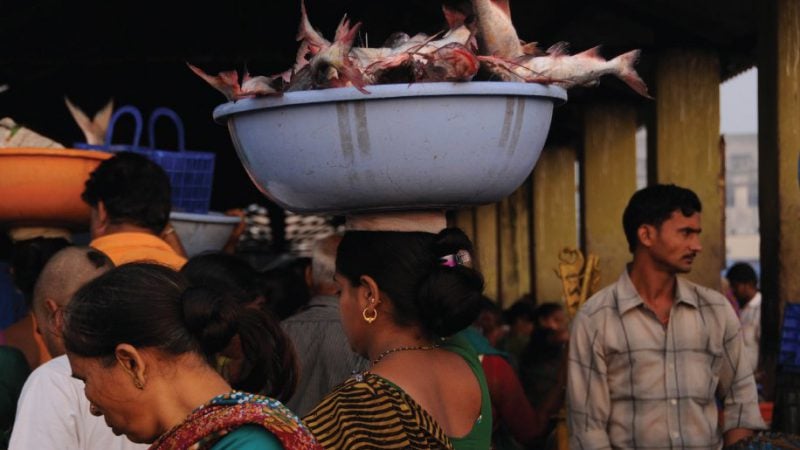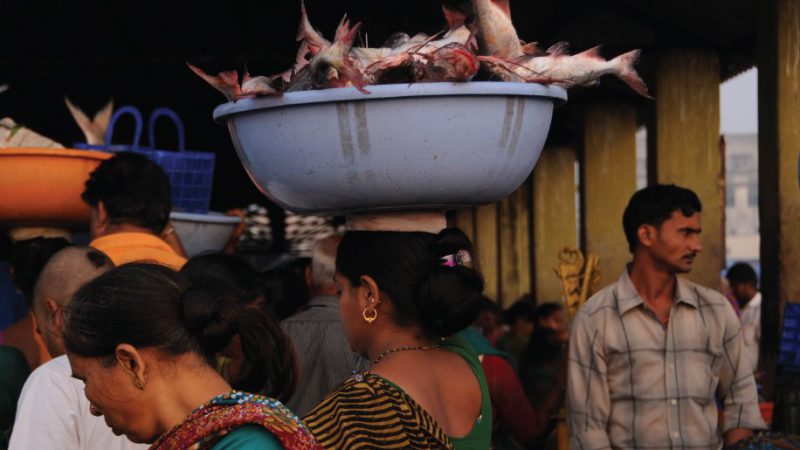4 Hours Mumbai
December 30, 2018


Sassoon Dock
Once known as the Seven Islands of Bombay, the city of Mumbai occupies a peninsula that lies on the west coast of India. It’s an economic hub of the country and home to a major port on the Arabian Sea. Stretching down the southernmost part of Mumbai’s peninsula is Colaba, an area where you could spend a day exploring. If time is limited, start with Sassoon Dock, one of the oldest docks in Mumbai. It will give you a glimpse of the city at its most real and, quite honestly, smelly. The fish market opens early, so by the time you arrive they will probably be finishing up, sorting out shrimps in the warehouses on either side. It may look half-derelict, but a working fleet brings its catch in here daily, and many five-star hotels and reputable restaurants buy their fish at this market.
Gateway of India Designed by George Wittet
in 1924, this huge basalt arch with Indo-Saracenic and Muslim
influences on the port side of south Mumbai commemorates the visit of King George V and Queen Mary in 1911. At 85 feet high, it was built as a symbol of British rule, but when India gained independence in 1947, the gateway was used in ceremonies for the last of the British troops departing the country. Today it’s an icon of the city, making it a popular tourist area, not least because boats leave here for Elephanta Island, one of Mumbai’s three UNESCO World Heritage sites (others include Art Deco style buildings and the Victorian era Chhatrapati Shivaji Terminus). But if you ignore the street vendors and satisfy yourself with a few pictures, it’s the one distinctive image of Mumbai that everyone will recognize.
St Thomas’ Cathedral
Mumbai has religious buildings of every variety, from stunning Jain temples – which you will pass later on your way up Walkeshwar Road on Malabar Hill – to the 1884-built Keneseth Eliyahoo Synagogue.
St. Thomas’ on Veer Nariman Road is one of the oldest British buildings in the city – and one of the oldest churches in India. Its construction began in 1676, but took forty years to complete. It was finally consecrated for divine services on Christmas Day 1718. Since that day, it has continuously been in use as a working, and worshipping, cathedral. In 2004 the church underwent a major restoration. Check out the memorials inside and the myriad fates that befell the colonials in India – including war, pestilence, or just plain exhaustion.
Churchgate Dabbawalas
The most famous railway station in Mumbai is the aforementioned Chhatrapati Shivaji Terminus. Probably the second-best known is Churchgate station, which takes its name from the nearby cathedral. It’s a great place to watch the dabbawalas, also known as tiffin walas, who bring hot lunches to office workers throughout the city from their homes in the suburbs.
The lunch boxes are individually coded with their ultimate destination. They are delivered so accurately that business analysts have declared their delivery operation to be Six Sigma (3.4 defective features per million). Each Hercules bicycle is loaded with 35 tiffin boxes and off they go through the intense midday heat, or quite often, monsoon rains. It’s a uniquely Indian phenomenon.
Mani Bhavan Mahatma Gandhi Museum
If there’s one Indian everyone has heard of, it’s Gandhi. Mani Bhavan was the house where the activist lived in Mumbai upon his return from South Africa in 1917. This was his headquarters during some of the most turbulent years of his career until 1934, when he left political life for a time.
The museum is filled with his books, correspondence and possessions – his bedroom is preserved as it was in his life, and there are pictures illustrating the evolution of his personal style from his days as a schoolchild and smartly dressed barrister to the archetypal image we all recognize today. Open daily 9:30 AM – 6:00 PM; (donation). 19 Laburnum Road; gandhi-manibhavan.org




